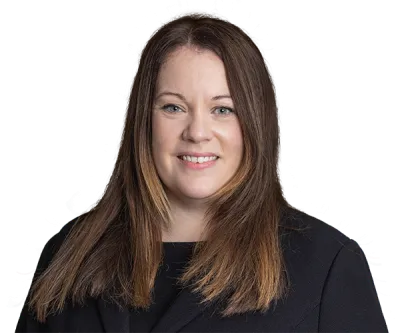Rented dwellings licensing regime to commence in Jersey
The Public Health and Safety (Rented Dwellings) (Licensing) (Jersey) Regulations 2023 (the "Licensing Regulations"), passed by the States of Jersey in November 2023, come into effect on Wednesday 1 May 2024.
What is the effect of the Licensing Regulations?
The Licensing Regulations prohibit the renting or letting of residential property without a licence. If a landlord has a portfolio of multiple residential properties, then each residential unit must have its own licence. The Licensing Regulations do not apply to non-residential or commercial lettings.
From 1 August 2024 (following a three-month transition period), it will be illegal for a landlord to rent a residential property without a licence. A licence will be issued if the Minister is satisfied that the property: (i) meets the minimum safety standards and (ii) does not contain a prescribed hazard.
How can a landlord apply for a licence?
Applications for a licence can be made online from 1 May 2024, and will cost £60 and be valid for two years (although a licence may be withdrawn in certain circumstances). Applications made in the first three months will not require a property inspection in order for a licence to be issued.
For this reason, a landlord would be well-advised to submit its application(s) prior to 1 August 2024.
From 1 August 2024, the Minister may choose to inspect the property to ensure it meets the minimum safety standards before it will issue a licence. A licence may contain conditions, which the landlord must comply with.
If the Minister does not inspect the property, then it must determine the application within 20 working days. If it does inspect the property (which must be carried out at the earliest reasonable opportunity), then the application must be determined within 20 working days after that inspection.
What are the minimum safety standards required for a property to obtain a licence?
In order for a licence to be granted, the landlord will need evidence of the following:
- an Electrical Installation Condition Report ("EICR") carried out by a competent engineer;
- a Gas Safety Inspection carried out by a person registered on the UK Gas Safe Register;
- a fully operational smoke alarm that meets standard EN14604 on each storey; and
- a fully operational carbon monoxide detector that meets standard EN50291 in each room susceptible to combustion of oil, gas, wood, coal or similar fuel.
There must also be no 'prescribed hazards' (as identified in the Public Health and Safety (Rented Dwellings – Minimum Standards and Prescribed Hazards) (Jersey) Order 2018) present.
What does a landlord need to provide to tenants?
In addition to the other information, a landlord must provide a tenant under the various residential tenancy legislation in place in Jersey, the Licensing Regulations also require a landlord to provide its tenants with the following information within 28 days of the licence commencing (and also within 28 days of signing a new tenancy agreement or the renewal of an existing tenancy agreement):
- a copy of the licence;
- a copy of the EICR;
- a copy of the gas safety inspection;
- information on how to raise a concern or complaint;
- a contact address and daytime phone number for any concern or complaint;
- an out-of-hours emergency contact number;
- details on how the concern or complaint will be dealt with; and
- notification that the tenant has a right to seek advice from or raise a complaint with the environmental and consumer protection arm of the States together with their contact details.
What if a property is sold?
The licence attaches to the property itself, and so will transfer to the new owner if the property is sold.
What are the consequences of renting a property without a licence?
Letting a property without a licence, or not complying with the conditions of a licence, is an offence liable to a fine at level three on the standard scale, which at the time of writing is £10,000.
Where a landlord has not complied with a condition of its licence, then it is a defence if the landlord can show it has taken all reasonable steps available to it to comply with that condition.
What properties are excluded from the Licensing Regulations?
Lodging houses, tourist accommodation, care homes and nursing homes, whilst each subject to their own regulatory requirements, fall outside the scope of the Licensing Regulations and so a licence will not be required for these types of residences.
Where can I found out more?
Please contact a member of the Carey Olsen Property Team if you have any specific questions on the application of the licensing scheme, or your rights and obligations as a landlord or a tenant.
The Government has also published a Code of Practice for Rented Dwellings (Rented Dwellings Licensing code of practice.pdf (gov.je)) and a summary of the guidance (Rented Dwellings Licensing Guidance Summary.pdf (gov.je)) which provide useful information for both landlords and tenants.






